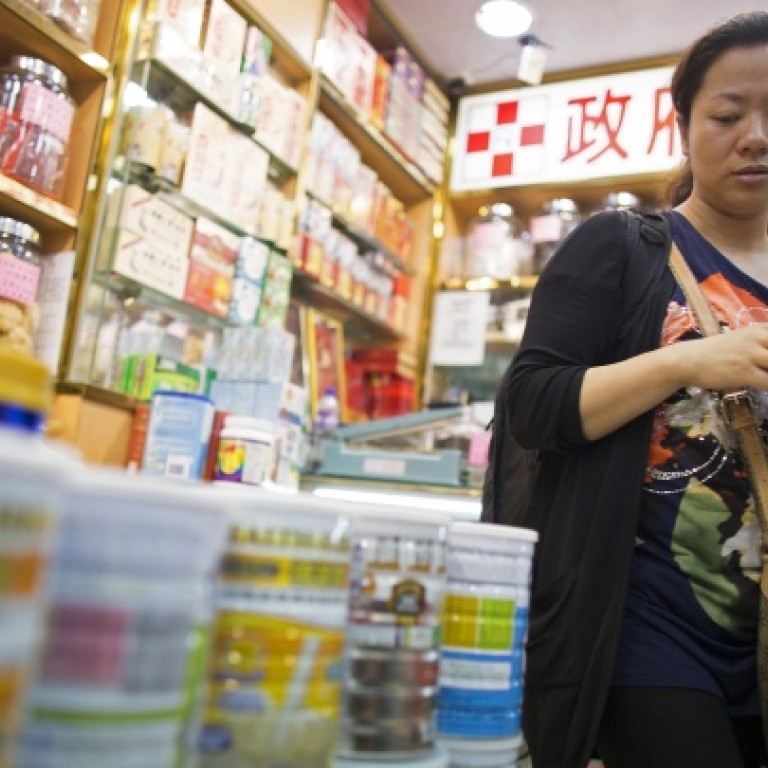
Chinese editorials flay study that showed domestic baby formula safe
Newspapers give the lie to industry-commissioned research, calling it nothing more than propaganda
Many mainlanders saw the recent announcement by the China Dairy Industry Association that domestic milk powder is better than imported products as nothing more than propaganda.
The reported on Monday that a study commissioned by the association had found that formula made on the mainland was more nutritious and cheaper than foreign brands.
The study also said that some foreign-branded products were actually being made on the mainland.
The public, however, remained sceptical, with many remembering the shadow cast over the industry five years ago when the products of leading domestic brand Sanlu were found to be contaminated with the industrial chemical melamine. At least six children who drank the tainted formula died and 300,000 fell ill.
Shenzhen's slammed the dairy association's announcement as "subversive". It said the public did not trust domestic brands and that even government officials like Wang Guangya , director of the State Council's Hong Kong and Macau Affairs Office, had asked colleagues to ferry milk powder from Hong Kong to Beijing for his four-month-old grandson.
"People's confidence in domestic formula has been reduced to zero, and the association has not taken any effective measures to save the industry from the crisis," it said in an editorial on Tuesday. "Instead, it released a report that not only ignored the facts but also insulted everyone's intelligence. The result will be just the opposite to what they want."
went to the heart of the problem, saying the research lacked transparency, just like the regulatory system for the dairy industry. It pointed out that the association had failed to identify either the company that conducted the research or the foreign brands that were tested.
"The problem was caused not so much by the public's love of foreign brands as their faith in the regulatory systems behind them," it said in an editorial on Tuesday. "The reputation of domestic baby formula needs to be rebuilt, and the government can make that happen only with an independent, transparent and fair regulatory system, and not simply by singing its praises."
The said on Wednesday that the fact that more and more mainlanders were buying milk powder overseas gave the lie to the "specious research".
The state-run newspaper quoted recent remarks by Premier Li Keqiang urging government agencies and companies to improve oversight of the food industry and to not waste time protesting their innocence.
"In the end, it does not matter if the cat is black or white, as long it ensures the nation's food safety," the paper said in a play on the late paramount leader Deng Xiaoping's famous remark. "There is still a long way to go before the industry regains the public's trust."
Tianjin's said the research would remind people of the old Chinese saying that "every cook praises his own broth". It noted that the thousands of online comments that the announcement had prompted were overwhelmingly negative.
"We would like to see domestic dairy companies being capable of producing the world's best product," it said in an editorial. "But this will happen only with better infant formula, and not mere words. It will be proved by consumers making free choices. The companies will have to be patient as they strive to regain parents' confidence."
The said that even if the research was real, public confidence in domestic formula would not return any time soon.
"It might be true that some people blindly buy imported products," the provincial government mouthpiece said. "That is ironic in a nation made famous by 'Made in China' products."
